Summary
Can the European Union contribute to the recovery of France, affected in its vital strength? As things stand, nothing is less certain. The European construction, which was the great affair of the 20th century, is now at a standstill.
This situation can only be remedied by clarification and simplification, which is a prerequisite for any further enlargement of the Union. Reviewing the division of competences between the Union and the Member States, taking greater account of demographic balances within the Union, and clarifying the role of national and supranational judges: these are the priorities of a necessary tidying-up.
In the exercise of their sovereign power, the French people should be called upon to approve this new European policy. This would also be an opportunity to affirm that France cannot rely on anyone else to guarantee its sovereignty, and that the Constitution remains its supreme law.
Édouard BALLADUR,
Former Prime Minister of France.
Press conference of the general de Gaulle, October 1st, 19
The creation of a Europe where nations would implement an organized common policy was the great initiative of the previous century. It led to progress, ruptures and, through an extraordinary complexity in the distribution of national and European competences, a sophistication of rules such that today everyone feels the need for clarity. There is talk of new progress. It would be better to stop the headlong rush and start by clarifying our long-term objectives with our partners.
Over the past thirty years, the world has changed a great deal, to Europe’s detriment. France has changed even more. It seems to have been affected in its vital strength. Can Europe contribute to its recovery? Nothing is less certain. Europe itself seems vulnerable and helpless, dependent on the rest of the world and at risk of imploding. In its current organization, has it built credible responses to our needs in all the areas where this would be necessary? The answer is no. In any case, solutions that would further increase the powers of the Union’s various bodies to the detriment of the Nation-States, whose dependence on them would be further reinforced, must be ruled out.
After successive enlargements, the Union now has 27 members. From the outset, the allocation of votes to each nation within the Council and Parliament took little account of the real size of the states, favouring those with the smallest populations. In this respect, things have gone from bad to worse.
From the outset, too, the division of competences between the Community, then the Union, and its constituent nations was marked by confusion, with some competences exclusive and others shared.
Progress has been made, but in a disorderly fashion that has allowed the European technostructure to increase its power still further, as evidenced by the often excessive and clumsy statements made by the current President of the Commission, who oversteps her powers at the expense of those of the European Council, made up of the States, which is the supreme body of the European Union.
As Prime Minister of the French Republic from 1993 to 1995, I had to take two initiatives. Hostile to a major and rapid increase in the number of members of the European Union, I feared that it would lose its coherence and dynamism. I proposed a stability pact, adopted in 1995, in which the States that had emerged from the collapse of the Soviet Union and were applying for membership would first have to undertake to respect their borders as they existed at the time, and the rights of the minorities within them.
Furthermore, as the often confused division of competences between States and the European Union only increased disorder, I suggested that Europe should henceforth be clearly organized into circles of varying composition and different competences. In a way, this was already the case, but the majority of the Union’s Member States were not determined to make it a principle, so the confusion persisted.
In 2008, the Treaty of Lisbon accentuated the shortcomings of European integration. The independence of the President of the European Commission in relation to the Member States was strengthened, as he or she was no longer appointed unanimously, but by a majority vote, and invested by the European Parliament; the Commission, which had a monopoly on legislative initiative, was accountable to the Parliament, which could censure it; and its composition was reduced, with each Member State appointing just one Commissioner, whereas previously the largest and most populous appointed two. As for the role of the European Council, it is most often reduced to an a posteriori approval of decisions taken by others.
As far as the distribution of competences is concerned, the confusion has only worsened, and strictly national competences have taken on a residual value.
Since then, France has taken the initiative of proposing a new enlargement and made proposals grouped under the heading of European sovereignty, excluding by definition French sovereignty in these areas. There are now several categories within the enlarged Europe: the Union’s Member States sharing all the competences provided for in the treaties; those which, at their own request, exclude currency and the free movement of people under the Schengen Agreement; those whose candidacy has been accepted and with whom discussions are continuing; those whose candidacy is on hold; those which remain outside but have concluded association agreements with the Union; and finally, those which will eventually join the European Political Community (EPC). Who can tell?
It is time to seek ways out of the confusion, and propose a few simple principles of clarification, simplification and preservation of national sovereignty in essential areas. As long as these reforms have not been adopted, no new member should be admitted to the Union. There are many prerequisites:
1/ If there can be no Europe without sovereignty in some areas, there can be no nation without sovereignty in others. France must remain sovereign in certain essential areas. It cannot claim to be a balancing power, free to determine its own foreign policy, while at the same time participating in all aspects of a foreign and security policy common to the whole of Europe and decided by Europe itself. The project of European sovereignty and strategic autonomy is not compatible with France’s independent diplomatic and military policy. Let’s face it: the European Union is made up of 27 peoples who speak 24 languages. Each wants to preserve its own identity, which does not exclude the exercise of certain joint competences. The Union is not a federal organization, nor should it become one.
2/ It is essential that a European code of conduct be drawn up, specifying the competences of each party and binding on all, so as to put an end to the ambiguities that are common habits of the European Commission, not to mention the Parliament. The task will not be easy, and will require time, patience and the will to succeed, but it is essential if we are to avoid the explosion of the European Union, which will not be able to resist confusion and disorder forever. One of the worst faults of the European Union is the suffocating aspect of the bureaucracy in the hands of a technostructure that imposes its choices in defiance of democratic functioning, facilitating the authoritarian interventionism of the Commission.
Therefore, the code should be very precise on the definition of the Union’s competences, on the procedures for examination by the Commission, and on the respective prerogatives of the President of the European Council, elected for several years, and the President of the Council of the European Union, who changes every six months. In this way, we can hope to avoid the constant addition of new complications to the rules already in force.
It should be possible for Member States to appeal to an intergovernmental arbitration body empowered to overturn decisions taken by the Union in breach of this code, which could not be the European Court of Justice, whose partiality is beyond doubt.
3/ The distribution of posts in the Commission and Parliament, as well as the votes allocated to each State within the European Council, must be reviewed in a more equitable way, taking better account of realities. Realism demands it.
For example, the 3 Baltic States, with a population of 6 million, have 3 Commissioners, while the 3 most populous European countries, Germany, France and Italy, with a combined population of over 210 million, also have a total of 3 Commissioners. If Albania, Bosnia and Kosovo, with a combined population of 8 million, were to join the Union, they would in turn have 3 Commissioners, so that, together with the Baltic States, a group of 6 countries with a combined population of some 15 million would have 6 Commissioners, while the Union’s most populous countries, with a combined population of 210 million, would have 3 Commissioners! The same imbalance applies to the European Parliament, where Germany has 96 Members of the European Parliament (MEPs), France 79 and Italy 76, that is to say, 251 MEPs for 210 million inhabitants, while Lithuania has 11 MEPs, Latvia 8 and Estonia 7, that is to say, 26 MEPs for 6 million inhabitants.
As for the European Council, since the entry into force of the Lisbon Treaty, each Member State has 1 vote, and the blocking minority requires at least 4 Member States representing 35% of the European population, so that France and Germany must enlist the help of 2 other States to block a text. This unequal distribution must be reviewed before any changes are made to the powers and voting procedures of the European Union.
4/ Once this change has been made, it will be necessary to ensure that each of the Union’s bodies respects its competences. The move from unanimity to qualified majority voting is sometimes presented as progress. This must be ruled out as long as the distribution of posts remains as unequal as ever, to the detriment of the largest nations. In any case, in the diplomatic and military spheres, France must retain its independence as regards to its role in the Security Council and the exercise of its nuclear deterrence.
Nor should it be subject to European directives on social issues such as bioethics, filiation and the end of life.
5/ We also need to clarify the competence and role of national and supranational judges in relation to political and governmental power. At present, we are witnessing an emulation between these jurisdictions to lock politicians into a straightjacket whose domain and scope they define alone, sometimes going so far as to refuse to apply the law. As for the role and place of the European Court of Human Rights, an emanation of the 46 members of the Council of Europe, there would be nothing but advantages in redefining them through the appropriate channels, unless we resign ourselves to the fact that judges from countries that were once part of the Soviet orbit presume to give us lessons in liberal democracy.
6/ Before any enlargement, it will be imperative to clearly define the construction of Europe in circles of variable competence and composition, and to make this a basic principle. There is no other way to organize the future of the European Union and its relations with the countries that wish to draw closer to it. We are already witnessing the emergence of profound differences between Western and Eastern Europe, with their often different political structures and traditions; it would be desirable to ask each Member State about its intentions. Europe by circles must not mean the break-up of the Union.
7/ As long as all these preconditions for a better organization of the future have not been met, any enlargement of Europe should be suspended. There can be no question of proceeding in a confused and disorderly fashion, as any headlong rush forward would only increase the paralysis of the European Union and ultimately encourage its break-up. Yet the tasks facing the Union are crucial to its future, and to ours.
There is no question of underestimating its role. There are many issues with which the Union should be more concerned in the future: the fight against illegal immigration at our common borders, economic relations with our close neighbours to the East and South to promote their development and cooperation, and a joint response to requests for assistance in promoting political stability and combating extremism. The Union has 450 million consumers, a robust economy and a solid currency, and can envisage promoting a common foreign policy for all its members, even though it is an intergovernmental organization, not a federal one. Europe cannot afford to turn in on itself with indifference.
At the same time, France must escape from the decline that threatens it, and become stronger if its voice is to be heard more clearly. The fight against deficits, debt and insecurity, to improve competitiveness, the education and hospital systems, and the effective regulation of immigration, all remain national responsibilities.
8/ We must ensure that the French Constitution takes precedence over any other rule of law, whether national or international.
At present, as Jean-Éric Schoettl points out, the European notion of the rule of law is infinitely extensive, and the Court of Justice of the European Union plays an important role in this process, while in Germany the Karlsruhe Court has upheld the primacy of the German Constitution over European law. Under the guise of the rule of law, the European Union is taking over the “competence of its competence,” which it feels it must define independently. Until now, France’s three supreme courts – the Constitutional Council, the Court of Cassation and the Council of State – have more or less allowed this to happen, with the result that the European Union is bridling national sovereignties. The Council of State has even prevented itself from vetoing the European Court of Justice, stating in 2021 that it is not the role of administrative judges to ensure compliance with the division of competences between the European Union and the Member States.
One might wonder whether the Council of State has forgotten the very reason for its existence. Following in the footsteps of the Court of Cassation, since 1989 it has ruled that European law, even secondary legislation, takes precedence over the law, even subsequent legislation, by virtue of Article 55 of the Constitution. According to the case law of the Constitutional Council and the Council of State, in order to override the provisions of a European text of a legislative nature, a constitutional principle inherent in our country’s “constitutional identity” must be challenged. A vague notion, of variable application and offering no real guarantee.
Should we adopt the principle that the people are the sole holders of supreme sovereignty, whose will, expressed in the Constitution adopted by referendum, takes precedence over all national, European or international standards? The consequence would be that France could declare that it no longer applies a treaty concluded with the European Union extending the latter’s competence, and which it had ratified.
To restore the French people’s faith in their future within a Europe that respects their fundamental interests, they should be asked to approve this renewed European policy by referendum. But this, it is claimed, would be contrary to the French Constitution; it would be impossible to consult the French people on the reform of Europe because of the limited scope of the referendum provided for in the Constitution.
This is true. So the Constitution would first have to be amended to extend the scope of referendums, whether they be presidential or popular initiatives. In a second phase, the new organization of Europe could then be submitted to the French people for approval. This would make it as democratic as it is desirable.
The first stage, extending the scope of the referendum, could be completed quickly and should not raise any major opposition. Everyone is proclaiming that it must be made easier for citizens to influence political decisions, and this enlargement would be the means of doing so. We cannot be opposed to extending the scope of referendums and at the same time regret that the people are not sufficiently involved in public life.
On the other hand, the second stage would be a referendum amending the Constitution to assert its supremacy and allow France to call into question a treaty it had previously approved; this would undoubtedly give rise to disputes that would have to be settled by the powers that be, which could take a long time. Does this mean that all planned reforms should be postponed? On the other hand, such an amendment would be essential if France were to be able, for example, to set sovereignly and on its own, the level of immigration from third countries that it accepts on its soil – in particular, to reduce it, as it is the profound will of the French people and in France’s interest – without being hindered by the European Convention on Human Rights or community directives. National courts would then be obliged to draw all the consequences, without being able to oppose legislative and administrative decisions reducing immigration to an acceptable level.
France could then submit a request for renegotiation to the European Union, which could not be refused without triggering a serious crisis. One might even wonder whether, without waiting for this second amendment to the Constitution, France could not ask the European Union to renegotiate the treaty.
Would all this be too dangerous for the serenity of our public life? To quote de Gaulle, “I believe that in France, the best Supreme Court is the people.”1
It is predicted that by 2100, in terms of wealth produced, France will be the 25th most powerful country in the world, still behind Germany and Great Britain. What would be the weight of such a weakened France? Could it claim to maintain its military and diplomatic independence?
I don’t know how good this forecast is, or whether the next century will see general nuclear disarmament, which I doubt. But if France were to give in, abandoning all its military responsibilities to Europe on the pretext that it was too weak, who would decide for it when its essential interests, and even its very life, were at stake? If France entrusted its power of nuclear deterrence to a European body, who would decide its survival for it? What would this body look like? Would it be collective, or exercised by a single man? Which would it be? It is inconceivable that France would rely on anyone but itself.
There is no other choice. If France is to survive, Europe must be reorganized, and France must remain responsible for its own destiny. It will be a long and difficult process, but we must start without delay.

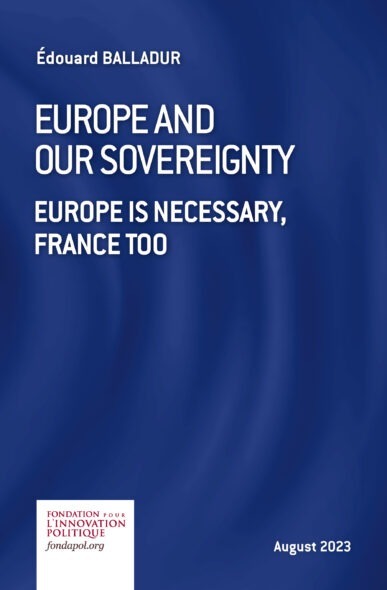
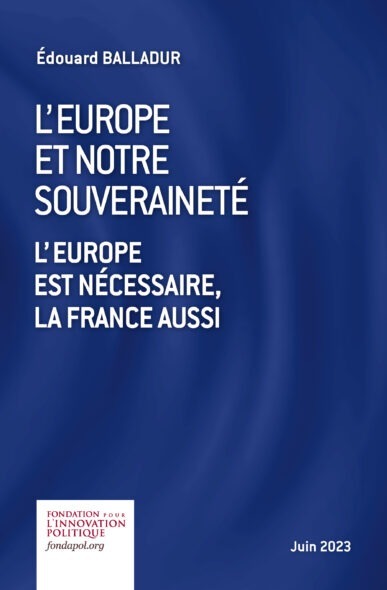
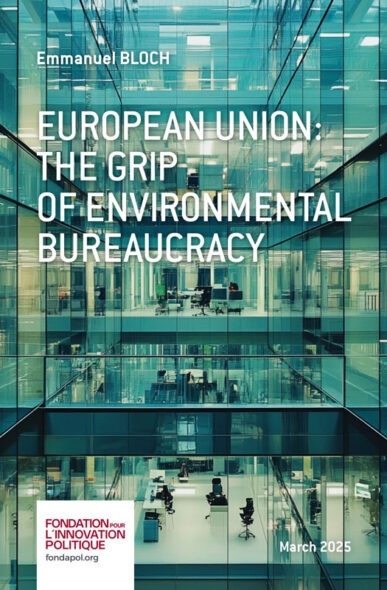
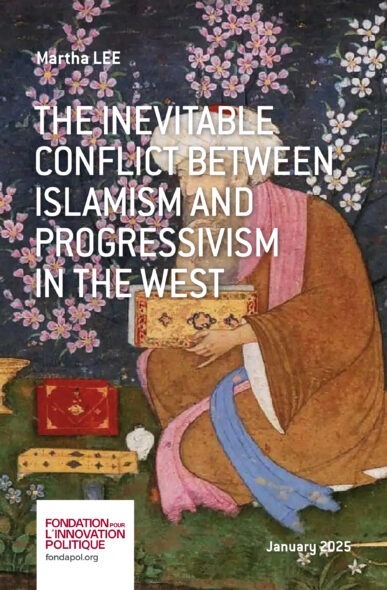

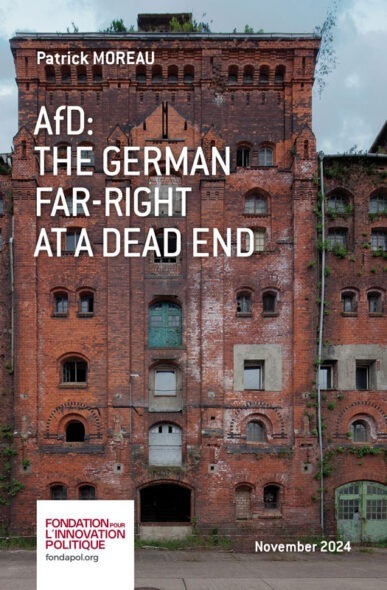
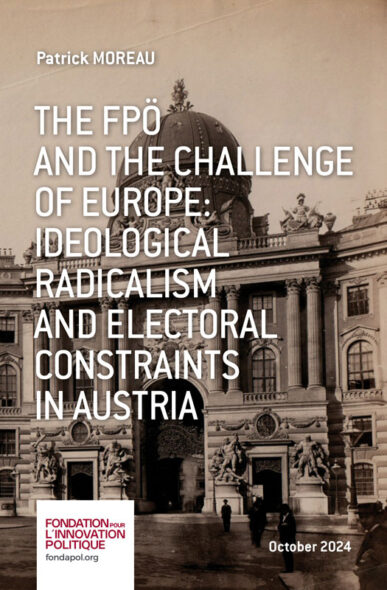

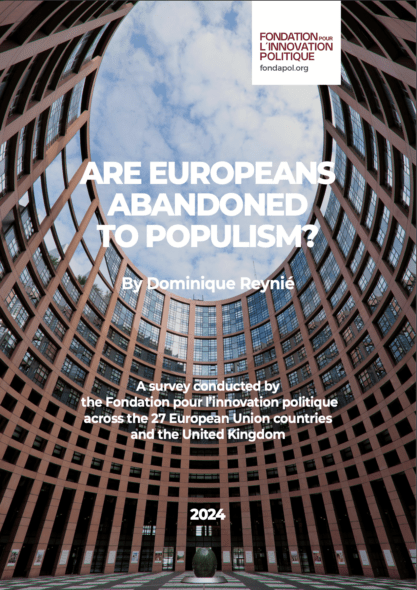
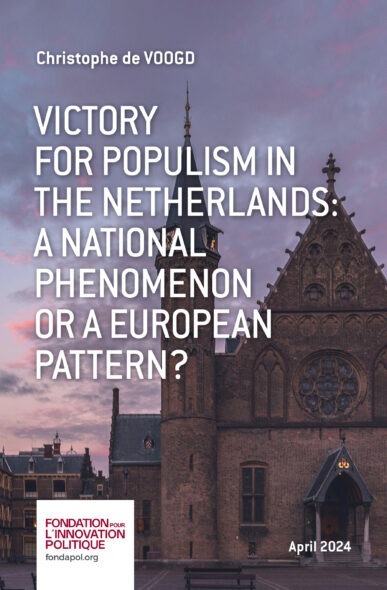
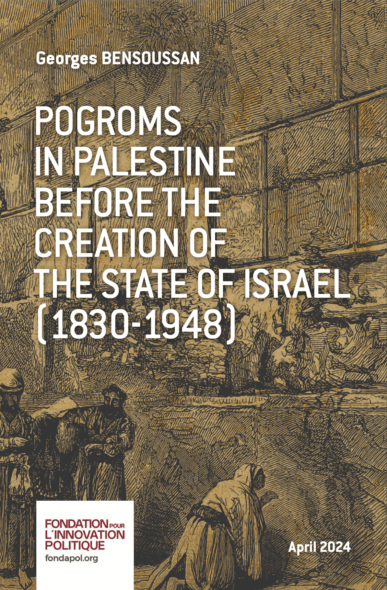
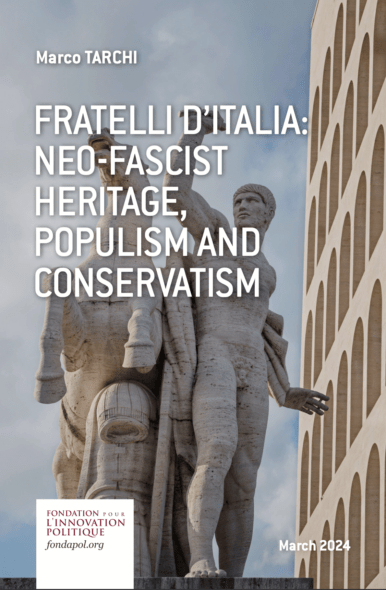
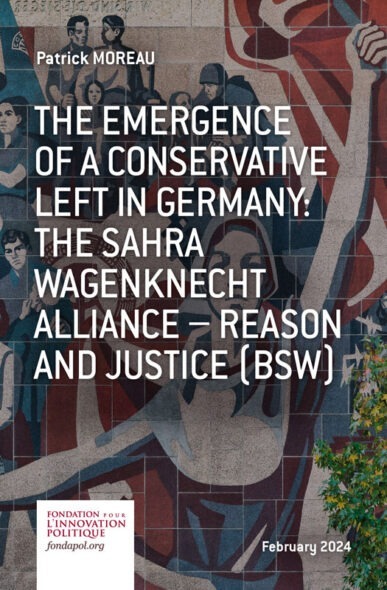
No comments.